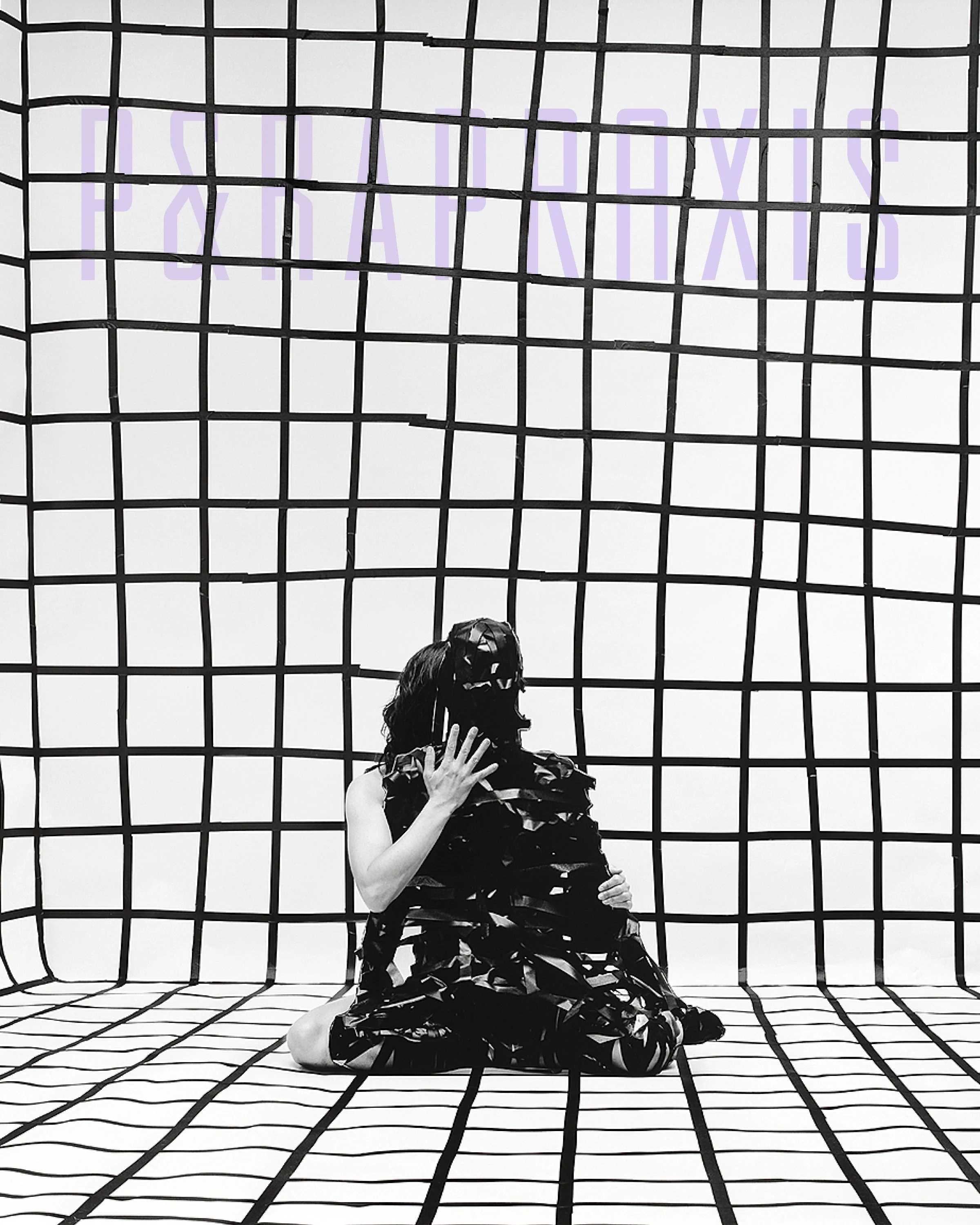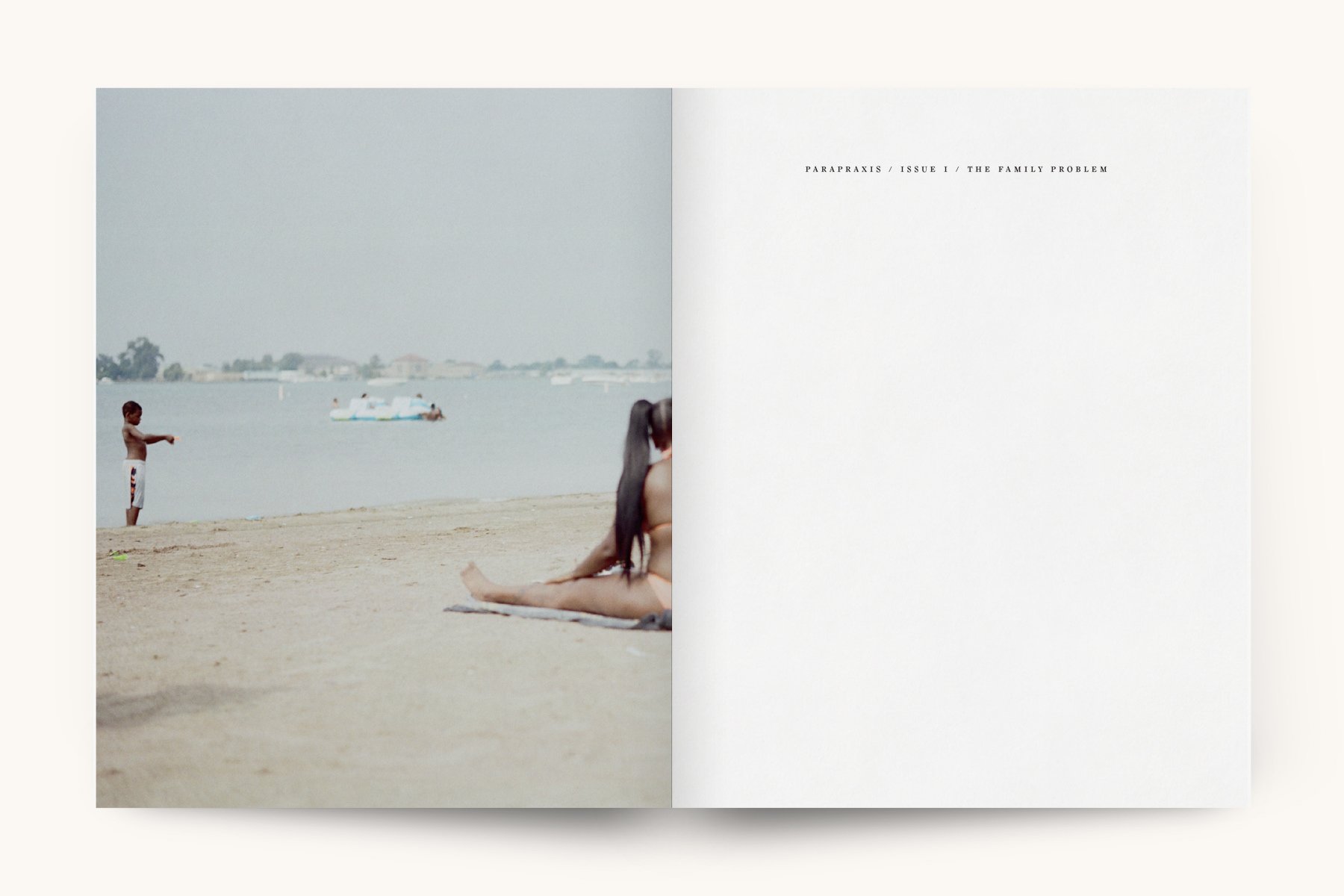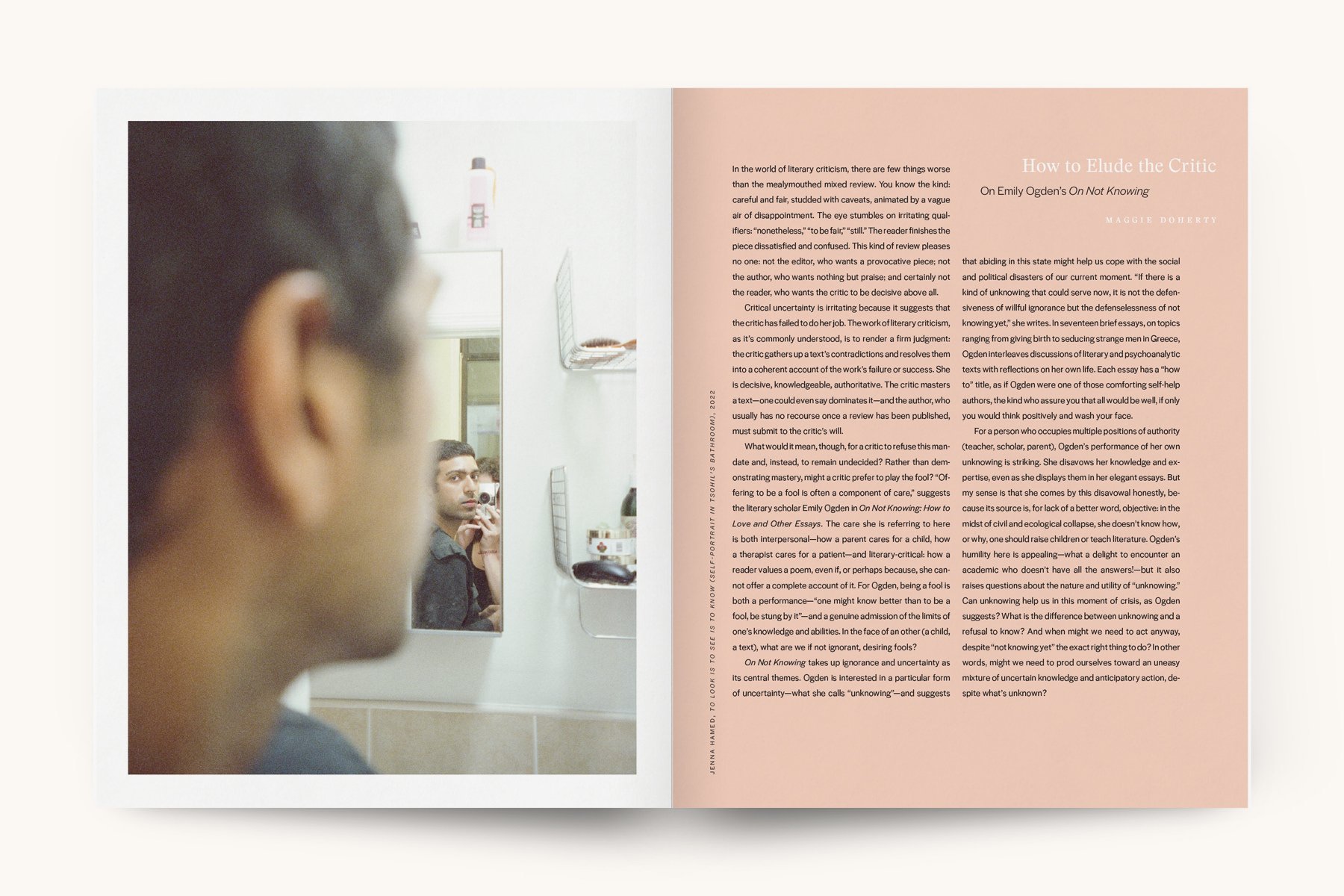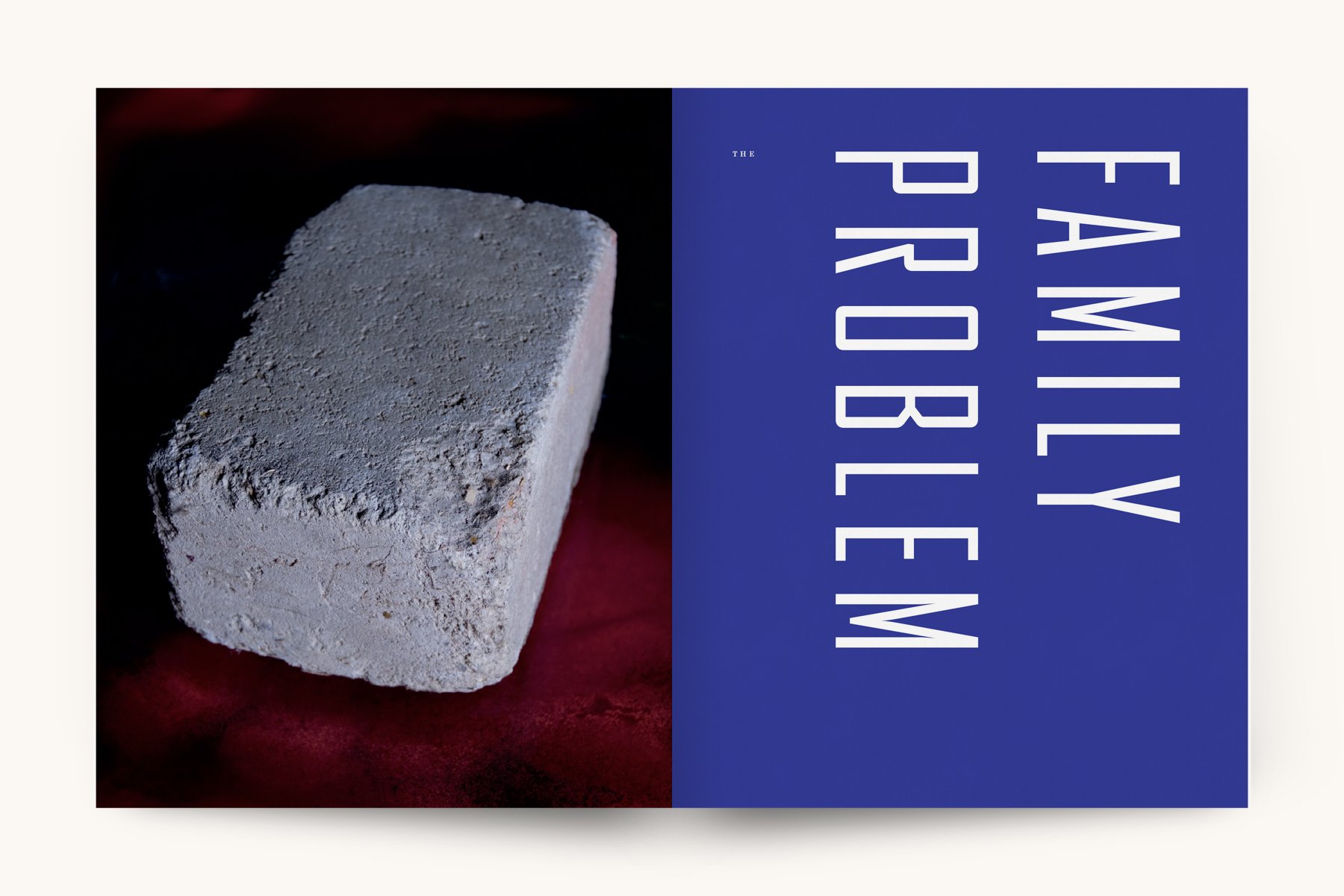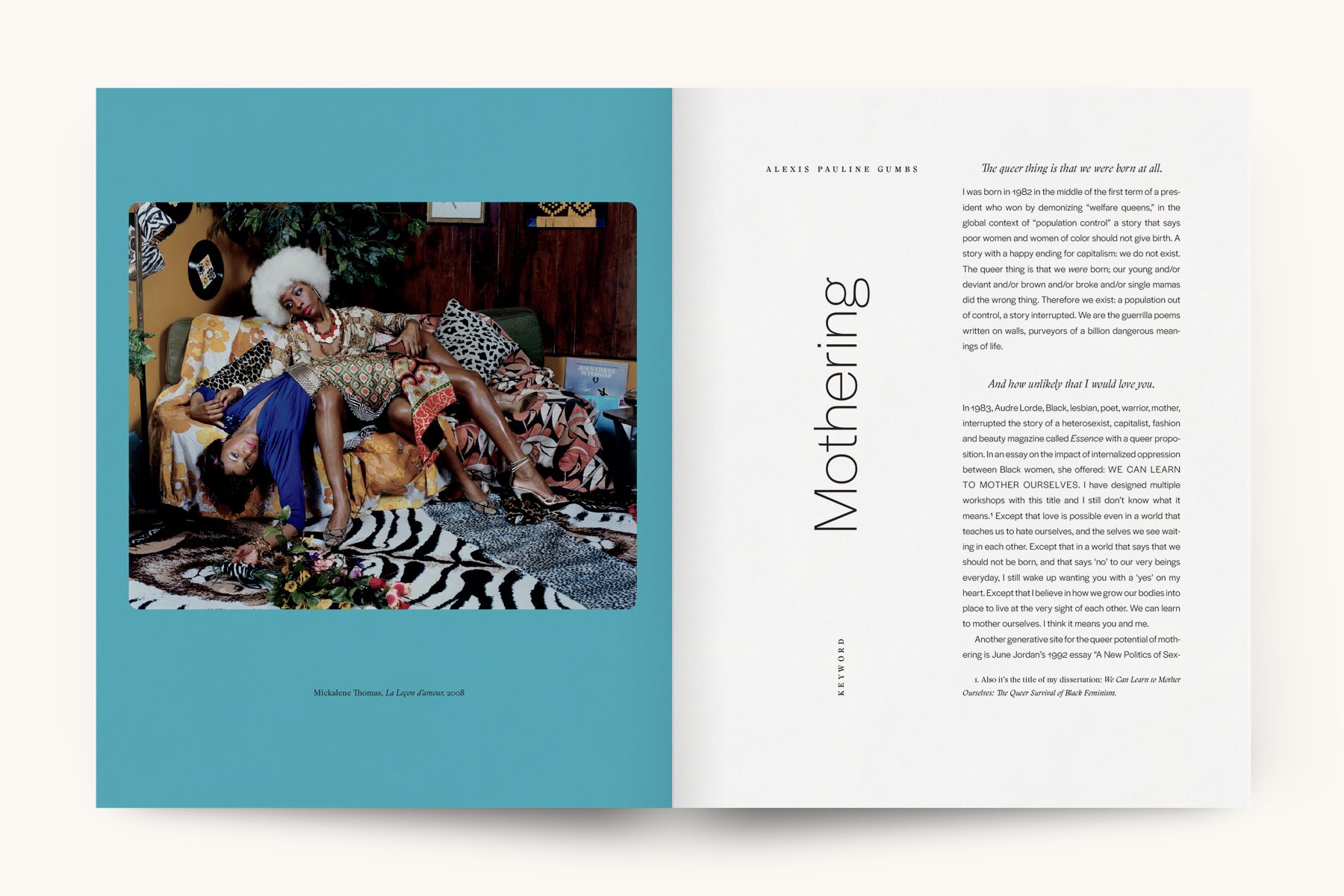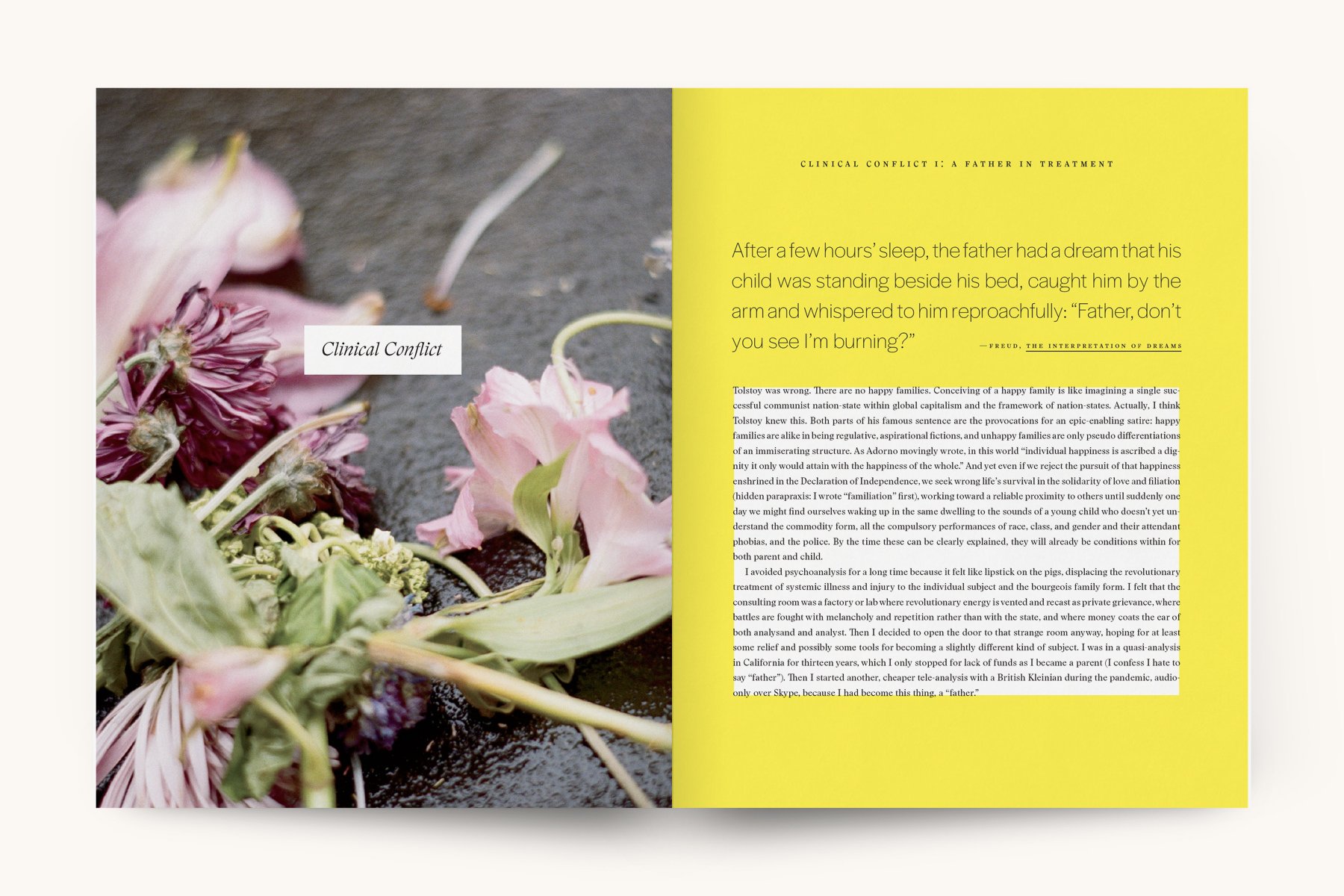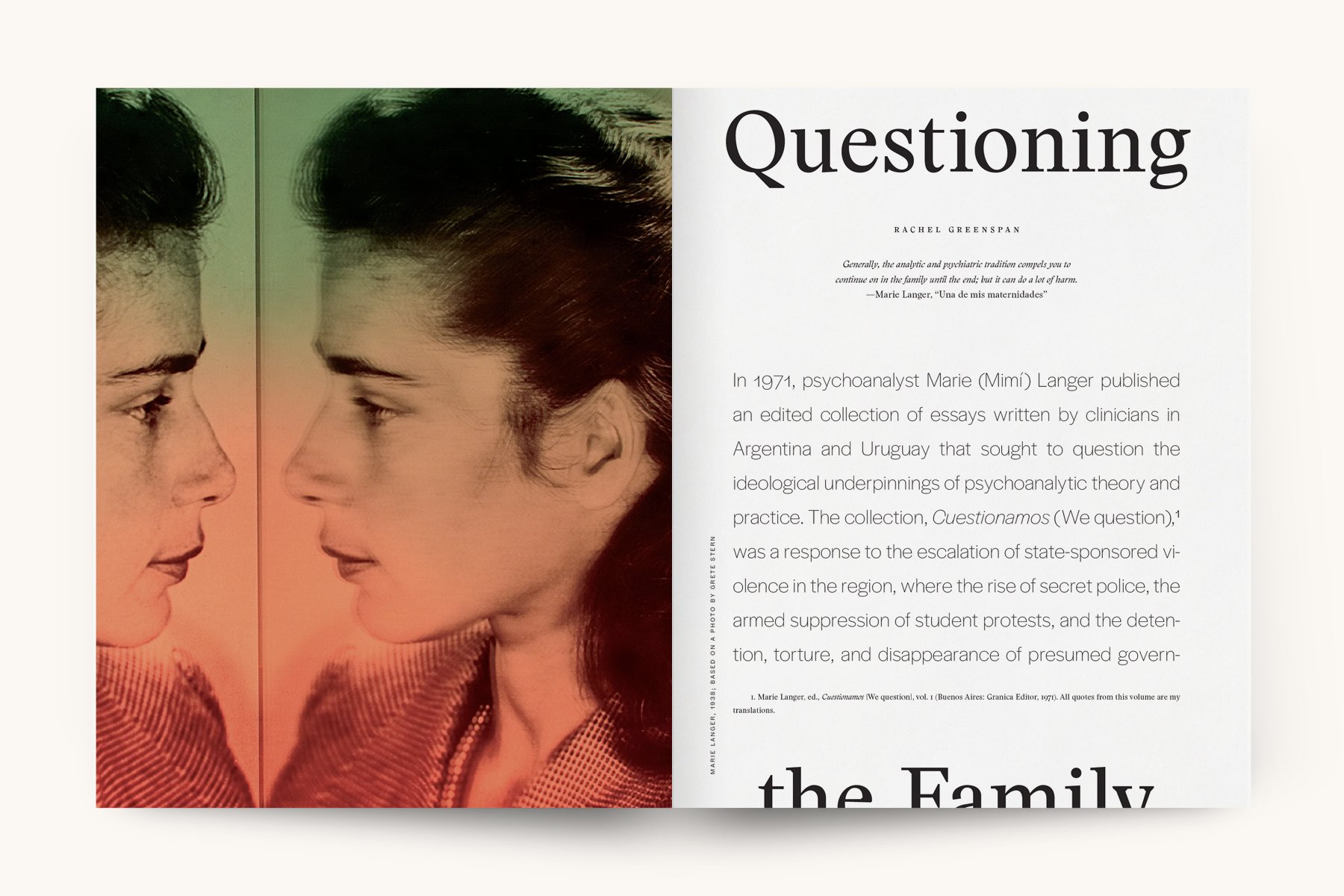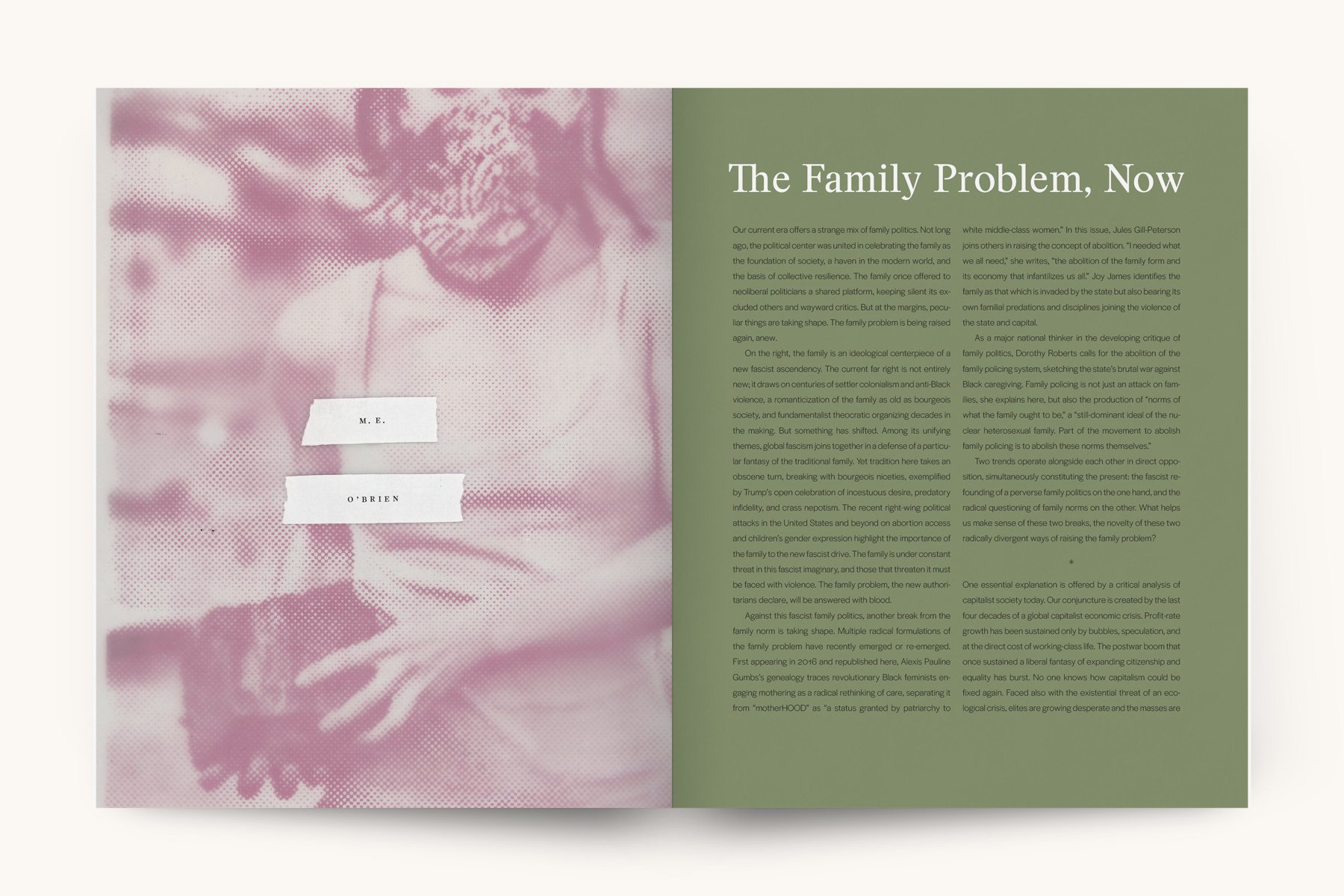Issue 07:
Romance
DECEMBER 2025
It is a particularly unlovely time to be thinking about romance. The heart can be fickle, indulgent, its matters distracting, impractical. But in the heavy boots of our undesirable present, seized by colliding catastrophes, we ask: how do we get out of here? Can the simple math of desire plus futurity break us free? Or is this just a barely veiled expression of our longing for avoidance? When we declare that love is the answer, we often forget the ambivalence of which psychoanalysis warns: love emerges in tandem with hate. It is neither the antidote to aggression nor the basis of a coherent social order.
As a narrative structure, romance insists on the future. Whether it's with a new lover hoping to break the repetition of bad patterns, in emotional growth born of the analytic couple, or inside the tremulous energy of an insurgent crowd that makes yesterday seem historically distinct from tomorrow, romance threads time with the texture of meaning. Perhaps delusional, perhaps heroic in this audacious promise, romance must also always be a fantasy, an imagined structure that has not yet met its match in the present. While this fantasy is vital to our attachment to the world and each other, it can also provide the fuel for self-serving denial and disavowal. When we say that the youth are not fucking and that they don’t care about politics, these separate charges obscure the nature of their common cause. As the world attempts to disavow the death of the earth and the removal of its peoples, our sense of continuity flees; the receding horizon is not an open road, but a vanishing point. Whither romance?
Dependent. Detached. Trauma Bonded. The Incest Lobby. Revolution Against Romance. Reading for Love and Labor. Surrealist Bedfellows. Mad Love. Essays by Nadia Bou Ali, hannah baer, Moon Charania, Davey Davis, Kaleem Hawa, Anna Kornbluh, Thomas Ogden, and more.
Contents
Editors’ Note
We’re Not Fucking Around
Rainer Diana Hamilton | Touch Lilac
Social Link
hannah baer | Loving the World on Fire
Davey Davis | Fearful Symmetry
Daisy Lafarge | The Romance of Diagnosis
Nadia Bou Ali | On Helplessness
Romance
Brian Connolly | Incest, in This Economy?
Lily Meyersohn | Take Care
Lily Scherlis | Sticking It Out
Cassandra Seltman | Detachment Styles
Laura al-Tibi | Bride at the Refugee Camp
Kaleem Hawa | Non-Closure Island
Kevin Duong | Apostles of Golden Love
Wild Analysis
Clinical Conflict I | The Good-Enough Lovers
Clinical Conflict II | The Threat of Difference
Secondary Gain 007 | An Anti-Advice Column
Thomas H. Ogden | How I Write
Moon Charania | Auto-Analysis: Mother, Death Becomes You
Bibliomania
Elena Comay del Junco | Morality, Obscene
Anna Kornbluh | Love’s Work
Madeline Gressel | Never Let It Go
Sublimations
Akshi Singh | Marion Miller’s Creative Confrontations
Marion Milner | Archival Selections
Akshi Singh | Following the Line
Marianne Brooker | Preserving What One Loves
In Error
Noor Asif | Stranger than Faction
Issue 06:
Resistance
JULY 2025
In 1911, Sigmund Freud addressed his followers gathered at Nuremberg, where he restated the import of his practice: “the task of psychoanalysis lies not at all in the discovering of complexes, but in the dissolving of resistances.” A formal antipode to political resistance, psychoanalytic resistance dams up desire and obstructs traumatic knowledge. It is conservative, allergic to change, and aims for the kind of frictionless normativity against which the unconscious drives rail. Meanwhile, we associate political resistance with change itself, with a blockade that pushes for revolution—rather than a blockage that censors its very possibility. If we read Freud as urging his followers to help their patients move through their resistance, psychoanalysis is a project on the side of material and political reality by bringing patients out of isolation and into social struggles. However, psychoanalysis is often glossed in reverse: as a project of isolated relief for the stubborn individual.
Should psychoanalysis only succeed at rendering patients compliant in their cure? Is psychoanalysis a tool for nullifying political resistance? If so, Freud’s edict for the aim of psychoanalysis is now but an epitaph. It would be easy, then, to give up the ghost, to let psychoanalysis go. But why should psychoanalysis retreat from collective symptoms back into the consulting room for individual treatment—away from strikes, riots, and uprisings, and toward complacency and normativity, if not quite literally marriage and babies? Why should the clinic not dare to be in and of the world?
Feeling restless. Hunger tactics. Laughing in the face of fascism. Breaking through. Diagnosing revolution. Madness in the Maghreb. Essays by Fady Joudah, Jamieson Webster, Dylan Saba, Yasmin El-Rifae, Ussama Makdisi, Mary Turfah, Hannah Proctor, and more.
In Memory of Joshua Clover (1962-2025)
Contents
Editors’ Note
The Blockage and the Blockade
Fady Joudah | Baby Moses & Khalas, or, Notes from the Palestinian Interior
Bibliomania
Ussama Makdisi | Breakthroughs and Breakdowns
AC Corey | The Flame They Tend
Mitchell Wilson | Comedy and Cruelty
The Social Link
Séamus Malekafzali | Axes of Resistance
Nick Malherbe & Shahnaaz Suffla | Outside In
Laila Riazi | Lose Your Father
Resistance
Dylan Saba | Fugitive Solidarities
Erin Clancy | The Embodying Politic
Jake Romm | Idée Fixe
Hannah Proctor | A Common Craziness
Jamieson Webster | Pulling Rank
Wild Analysis
Clinical Conflict I | No Life Given to the Dead
Clinical Conflict II | Call It Ideology
Salma Shamel | The Ends of Equivalence
Secondary Gain 006 | An Anti-Advice Column
Yasmin El-Rifae | Auto-Analysis: On Restlessness
Abdeslam Ziou Ziou, Victoria Baena (trans.) | The Sanctuary of the Mad
Sublimations
Mary Turfah | Complicity
Francis Gooding | Like Deepening Thunder into Our Hearts
Rosie Stockton | Staging the Clinic
In Error
Akshi Singh | Unconscious Terrorists, Erroneous Targets
Issue 05:
Economies
JANUARY 2025
Like Freud’s prototypical baby, we struggle over whether to keep our body together or to give it away. We all live these scenes of bodily loss. Freud and Marx both sing harmoniously: what we give up, we give under duress. We are not easy with what we’ve been tasked with, but the task has been the same since birth, doubled in the name of emancipation: first, there’s nothing less than to survive alienation and exploitation, then there’s staying alive for one another’s sake. Perhaps the storied antagonism between Freud and Marx turns on the difficulty of holding these tasks together, balanced on the knife’s edge that separates self-interest from collective liberation.
Capitalism does not produce itself all alone, no matter its disciplines and political-economic constraints on the reproduction of society. If Marx taught us anything, it’s that capitalism produces its own gravediggers, the proletariat—“the unreason of reason,” he quipped, where the dominant social order encounters its unconscious element. Through the bad exchange of capitalism comes a gothic reversal, from precocious life to premature death, where workers end up burying themselves instead of the system that provides the grave plot. That exchange is felt internally, in a rift that cleaves open the self. Freud, for his part, helps us describe how the political-economy hammers our lives into unreasonable and reasonable shapes, imaginary and real, as countless and heterogeneous as the individual faces in a collective mass. For each and for all, we bring psychoanalysis to bear on the political-economic problems we suffer in common.
King Ketamine. Beyond the vibecession. Austere Mothers. Sick at Work. Money, Feces, Babies, Gifts. Essays by Juliana Spahr, Peter Coviello, Nicolás Medina Mora, Jyoti Rao, and Hannah Proctor. Images of Red Vienna from Wilhelm Reich’s camera, dispatches from Lebanon, and more.
Contents
Editors’ Note
Bad Exchanges
Bibliomania
Sarah Stoller | Austere Mothering
Marie Brown | Setting Psychiatry Free
Patrick Lyons | Working Existence
Nico Baumbach | The Last Good Dad
The Social Link
Nadia Bou Ali | Living with Ghosts
Taija Mars McDougall | King Ketamine
Nicolás Medina Mora | Neoliberalism’s Death Drive
Nausicaa Renner | Normotic Moms
Economies
Jyoti M. Rao | Niki, Priti, Vivek, and Rishi
Hannah Proctor | How’s Your Mood, Comrades?
Simon Torracinta | Vibe Goes Down
Luke Ali Manzarpour | Total Transference
J.E. Morain | Escape Velocities
Hannah Zeavin | Too Communist, Too Freudian
Wilhelm Reich | The Mass Psychology of Fascism
Håvard Friis Nilsen | The First Freudian Analysis of Fascism
Wild Analysis
Clinical Conflict I | The Pain of the Fee
Clinical Conflict II | Training Sickness
Secondary Gain 005 | An Anti-Advice Column
Juliana Spahr | Auto-Analysis: Bait Ball Psychoanalysis
Eri Linsker | Neurodiverse Economies
Thomas Ogden and Warren Poland | Cure Without Insight
Sublimations
Jeff Nagy | Filth-Feed Forward
Peter Coviello | Apocalypse Later
Cassandra Guan | Beyond the Utilitarian Principle
In Error
Thomas Waller | Bad Object
From the River to the Sea: The Palestine Issue
NOVEMBER 2024
We release this special issue as one collective voice within the call for abolition, transformation, and exit.
Rather than evacuating our consulting rooms and classrooms of politics, we here seek to put the center of the world at the center of psychoanalysis.
All the proceeds of this issue will go to The Gaza Community Mental Health Programme, where trying to understand and helping the victims of this ongoing catastrophe go hand-in-hand.
Contents
The Editors | For Life’s Sake
Nadia Bou Ali | Social Hell
Mary Turfah | Israel’s Reality Principle
Adam HajYahia | The Principle of Return
Rana Issa | The Right to Exist
Nihal El Aasar | Left-wing Melancholia
Jake Romm | Elements of Anti-Semitism
Tad Delay | Evangelical Zionism
David Markus | Persecution Terminable and Interminable
Kaleem Hawa | Like a Bag Trying to Empty
Evan Goldstein | Freud’s Jewish Closet
Donald Moss | On Representations of Evil
Lama Khouri | Is This a Dream or for Real?
Yasmin El-Rifae | To Know What They Know
Nadia Bou Ali | Ugly Enjoyment
Issue 04:
Security
AUGUST 2024
A secure hand props up the head that cannot yet hold itself up. Nourishment cannot be secured without the other and must come frequently. The infant’s body relies on another body, who slowly comes more fully into view. Psychoanalysis posits security as among our earliest needs, starting with our first encounters—those most basic, physical interactions between caregiver and infant. In the infant-maternal scene, security is the shape and scope of safety. Its original availability makes its eventual withdrawal possible and tolerable, or not. When it's working, the analytic room can function as a shelter, a place to weather turbulence as traumas, wounds, and losses accumulate in a catastrophic present.
The psychic life of security exists at every scale. The fantasy of a secure “inside”—the home, the people, the nation, the border—is protected from breach by the enforcement of limits that corroborate the existence of threat. The insecure nation state is the most violent, repressive, annihilative, and its citizens become insecure in turn—both vulnerable to its wounded attachment to any given state and elected to bear the crises of its reaction. In such conditions, an excitable body politic is unleashed into a flood of anxious energy as the nation rationalizes violence in the name of security’s supposed reality principle.
Security is always a fantasy. The question is what we make of it. Introjecting mother, eating dirt. Escaping therapeutic boarding school. Israel in and out of the consulting room. Essays by Akshi Singh, Thomas Ogden, Tiffany Lethabo King, Hussein Omar, and Samuel P. Catlin. A quiz by Anahid Nersessian, newly translated Francesc Tosquelles, and more.
Contents
Editors’ Note
Cracking Up to Crackdown
Bibliomania
Emily Schlesinger | Take This Longing
Nica Siegel | Fanon’s Revolutionary Gaze
Willa Smart and Beckett Warzer | Passions and Perversions
The Social Link
Samuel P. Catlin | The Campus Does Not Exist
Hussein Omar | Homo Zion
Federico Perelmuter | Gated Communities of the Mind
Hentyle Yapp | China, the Oceanic, and the Compromised
Security
Akshi Singh | Unlived Security
Wendy Lotterman | Within a Barren Grove
Seb Franklin | The Pattern and the Police
Perwana Nazif | Be Incomprehensible
Francesc Tosquelles (trans. Perwana Nazif) | A Politics of Madness
Joana Masó (trans. Perwana Nazif and Jesse Newberg) | The Collective’s Women
Wild Analysis
Clinical Conflict I | Days of Awe
Clinical Conflict II | Out of You and Me
Thomas Ogden | A Letter to a Young Writer
Tiffany Lethabo King | Auto-Analysis: Geophagia
Secondary Gain 004 | An Anti-Advice Column
Anahid Nersessian | Quiz: What Is Love?
Sublimations
Ramsey McGlazer | These Alien Guests
Matthew Ellis | Index’s Limit
J. D. Schnepf | Radiant Security
In Error
Hannah Zeavin | Secure States
Issue 03:
The Wish
DECEMBER 2023
IN THE BEGINNING WAS THE WISH.
Dreams are the only place we can have what we wish, but both the wish and its fulfillment will be distorted. This is the Freudian notion of the dream. By 1900, Freud’s Interpretation of Dreams laid out his great achievement—a theory of the unconscious at work and a method for chasing its meanings down the royal road of dreaming. Freud doesn’t think the dream sends us a message, at least not a direct one. Instead, the dream tells us, particularly when recounted in analysis, of our wishes.
Psychoanalysis, one could say, was originally a science of wishes. But as we may have been told since the morality plots of Aesop’s fables, we have to be careful what we wish for, lest it come true. It is, as it has been said, the worst thing that can happen to a neurotic, to experience true wish fulfillment. Oedipus, after all, got his wish. If the basic unit of psychoanalysis is the wish, wishing has also been crucial to understanding mass protest, utopian theory, the drive to freedom, as well as the affects central to daily life under capitalism, the wish to destroy the other, be destroyed, to merge, to possess, to be possessed.
Before we could formulate psychoanalytic theories of desire, anxiety, and drive, Freud knew we had to be careful what we wished for. Consent and its limits. Bad trips. Yearning for a radical clinic that was and wasn’t. Speaking the wish to be silenced. Death drive against ecocide. The wish for girlhood otherwise. Essays by Amber Jamilla Musser, Samo Tomšič, Eugenie Brinkema, Jyoti M. Rao, Anna Kornbluh, Grace Byron, and more.
Contents
Editors’ Note
The Sign Outside the No Future Nightclub
Bibliomania
Katie Kadue | Why Is No One Talking About Muteness Envy?
Mimi Howard | Boisterous Demands
Samuel P. Catlin | Lee Edelman’s Lesson
Jyoti M. Rao | Sex Alters
The Social Link
Anna Kornbluh | We Didn’t Start the Fire
Kevin Duong | Broke Psychoanalysis
Grace Byron | Idle Worship
Hannah Zeavin | Bad Moods
The Wish
Samo Tomšič | Freud’s Three Wishes
Amber Jamilla Musser | I’m Your Baby Tonight
Nate Gorelick | Psychoanalysis on Drugs
Daniel Rosengart | A Most Dangerous Wish
Wild Analysis
Claire Donato | Auto-Analysis: We Will Never Be Friends
Secondary Gain 003 | An Anti-Advice Column
Clinical Conflict I | The Collective Unconscious
Clinical Conflict II | Super Vision
Clinical Conflict III | If Only I Could Climb Walls
Sublimations
Sasha Frere-Jones | Rhythmic Listening
Nathan R. Duford | Failure to Appear
Eugenie Brinkema | Ten to Twelve Dead Brothers
In Error
Michelle Rada | Indifference, the Vital Force
Issue 02:
Repair
AUGUST 2023
Psychoanalysis, like the world, is in disrepair. Yet it has staked its cure on the possibility of reparation. Still, repair implies that we know what has gone wrong—what is bad or what is good—and once that knowledge is ventured, things, people, and the world split. The possibility of repair suggests that we might recover—that we know what we’ve lost, can locate what’s been taken, and can set about making a new whole or returning to the old. Yet, in the wake of ongoing white supremacy and colonial dispossession and subjugation, the class divide that composes and decomposes strife, and the petrifying distinctions that segregate across race and gender, the world seems irreparably riven.
In this issue we descend into the butcher’s butchered world, inside and out, to see what damage has been wrought and in whose name. The haunting of remains. Boundary and boundary violation. Feeling down and out in Berlin. The challenges of a global red clinic. Wherefore Fanon. Watching courts. Irreparable communing through ordinary psychosis. The nation, belonging, the state. An interview with Denise Da Silva. Essays by McKenzie Wark, Wayne Wapeemukwa, Kelli Moore, Francisco González, and more.
Repair is not an event, but an ongoing demand, one that is impossible to satisfy and impossible to avoid.
Contents
Editors’ Note
In the Butcher’s Shop
Bibliomania
Hannah Zeavin | Death’s Work
Abby Kluchin | Damaged Justice
The Social Link
McKenzie Wark | A Call for Reparations
Wayne Wapeemukwa | We Hear an Angel
Jaice Titus | Assistance for the Mind
Hiʻilei Julia Kawehipuaakahaopulani Hobart | The Windward View
Repair
Zoé Samudzi & Noor Asif | Breath Back
Rouzbeh Shadpey | A Heart Under Attack
Francisco J González | No es fácil
Nica Siegel | Destiny To Be Set Free
Perwana Nazif | Appearance of a Djinn
Denise Ferreira da Silva interviewed by Patricia Ekpo | We (Don’t) Want the End of the World
Wild Analysis
Secondary Gain 002 | An Anti-Advice Column
Er Linsker | Post-Bionian Blur Theory
Amy Wong | Auto-Analysis: Melodrama Unmade
Clinical Conflict I | The Hole of Ordinary Psychosis
Clinical Conflict II | My Blameless Physician
Clinical Conflict III | A Comfy Gender
Sublimations
Noor Asif | Everyone Told Me I Would Love Berlin
Kelli Moore | Judgment’s Tableaux
Zoé Samudzi | Held Hostage
In Error
Alex Colston | Revolutionary Shame
Issue 01:
The Family Problem
DECEMBER 2022
The first myth Freud sought to dismantle was that of the wholesome family. Yet a hundred and some years later, Freud’s family and other figments still agitate us. We truly can’t seem to live with the family real and imagined, and equally, we can’t yet live without it. Our first issue is on this thorniest of thickets. From the clinic’s conflicts to social and political critique to literary and aesthetic criticism, we have given the family the psychoanalytic treatment, as but one step toward curing ourselves of its compromised form.
The anatomy of gender panics. The delusion of elder care. Fascist feminism. Sitcoms and sex. Psychoanalysis so interminable the analyst can’t terminate. Mothering beyond motherhood. Revisiting Juliet Mitchell and mourning Sara Suleri. An interview with Dorothy Roberts. Features by Max Fox, Joy James, Rachel Greenspan, and others.
There will, as always, be more forms and symptoms to treat. This is simply our beginning.
Contents
Editors’ Note
A Tragedy of Errors, A Comedy of Terrors
Bibliomania
Maggie Doherty | How to Elude the Critic
hannah baer | The Controversial Report
Rosie Stockton | Like Woman Herself
Noor Asif | Ravenous Restraint
The Social Link
Jessica M. Harrison | Untethered Kin
Harold Braswell | Denying Nothingness
Sarah Goldberg | Fresh Sufferings
The Family Problem
Max Fox | The Traffic in Children
Jules Gill-Peterson | Keyword: Child
J. Khadijah Abdurahman | To Abolish Family Policing: An Interview With Dorothy Roberts
Hannah Zeavin | Composite Case
Alexis Pauline Gumbs | Keyword: Mothering
Joy James | Maternal (In)Coherence
Rachel Greenspan | Questioning the Family
Alex Colston | Keyword: The Father
M.E. O’Brien | The Family Problem, Now
Wild Analysis
Clinical Conflict I–III | A child analyst; a former child patient; a dad in treatment
Secondary Gain 001 | An Anti-Advice Column
Sophie Lewis | Auto-Analysis: Caren Allstrich
Sublimations
Andrew Key | Daddy’s Gone Away
Adelita Husni Bey | The Problem of the Missing Meat
Grace Lavery | All Together Now (print-only)
In Error
Brian Connolly | The Complex of the Nuclear Family

